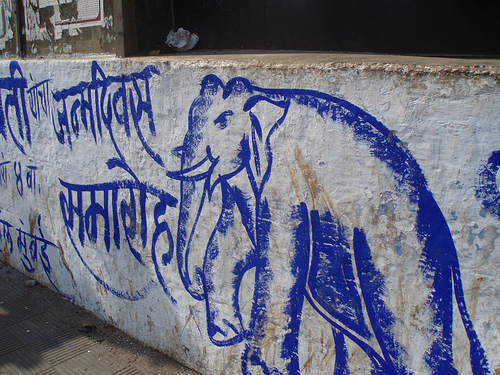Struggles against racism and discrimination get a lot of publicity when they are oriented in terms of white Northerners subordinating another group within or outside the Global North. The attention is predictable in light of the history of imperialism, the global political and economic power of North America and the European Union, and the racism experienced by various groups within those regions. The case of the Dalits in India — historically known in the USA and Canada as the “untouchables” — opens up the categories of discrimination to an integral analysis that includes caste, class and race. The Dalits understand that not only does the Global South need to prevent the encroachment of the Global North, but the South itself has to be decolonized internally: the difference within difference must be protected.
Historically, it is well known that India has been a prominent Southern country — not only in terms of its current economic eminence, but also in terms of its past political solidarity. The country has an admirable history of convening Third World liberation forces, as in the case of the 1955 Bandung conference. India has historically supported anti-racist causes as well, such as the struggle against apartheid in South Africa. Yet, India, despite its anti-discrimination laws, affirmative action policies and social movements of Dalits and non-Dalits against casteism faces its own form of apartheid — though this is rarely recognized as such.
The Dalits are, quantitatively, the largest oppressed group in the world. There are over 200 million “untouchables” in South Asia and they are discriminated against in a variety of ways. The Dalits are relegated to the most menial jobs. Although it is technically illegal to discriminate against the Dalits, in practice the “Scheduled Castes,” their legal designation, are the group that suffers the harshest prejudice. Ninety per cent live as landless labourers in the rural areas and casual labour in the urban. They are reduced to the most demeaning forms of work such as cleaning and clearing human excreta by hand, carrying dead animals, and sweeping the streets. They are not permitted to marry across caste lines nor are they allowed to use the same wells, visit the same temples, or drink from the same cups at tea stalls. One half of the Dalits live below the poverty line, 90 per cent do not have access to sanitation and over 80 per cent of their children are not enrolled in primary education. As well the Dalit community has had to live in a constant state of fear due to threats from upper-caste militias. The Dalit situation embodies the violence of imperialism, not simply from North to South, but within the South itself.
The National Campaign on Dalit Human Rights interprets the situation of the Dalits as one of status subordination. Recognizing that they have been prevented from acting as equal members in social life, their solution is not merely a cultural or economic one, but a strategy of facilitating their members’ entry into society as citizens with equal rights to all other citizens. The policies proposed by the Dalits depend on state intervention. For example, they call for the consolidation of constitutional, legislative and administrative procedures including affirmative action programs to prevent and redress prejudice based on work and ancestry related to caste. They also seek a guarantee that all of the country’s human rights and judicial institutions will include representation from the Dalit community.
There is a historical precedent for this belief in the state: public recognition of the situation of the “untouchables” accelerated during India’s Independence struggle. It was precisely at the moment of assertion against British imperialism that the Dalit struggle emerged into public awareness. Thus their advance was made within the anti-imperialist call for an independent Indian state. The Dalits most recently emerged into prominence at the World Conference Against Racism held in South Africa in 2001. At that conference the Dalits aligned with various anti-discrimination forces in acknowledgement of their common local and global forms of subordination. The Dalit call for another, better world depends on decolonization — not only from the Northerner colonizer but from the decolonized South as well.
Thomas Ponniah was a Lecturer on Social Studies and Assistant Director of Studies at Harvard University from 2003-2011. He remains an affiliate of Harvard’s David Rockefeller Center for Latin American Studies and an Associate of the Department of African and African-American Studies.
Photo: the opoponax/Flickr



